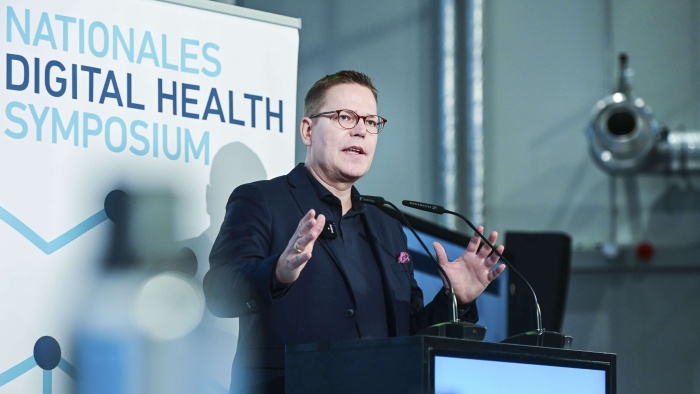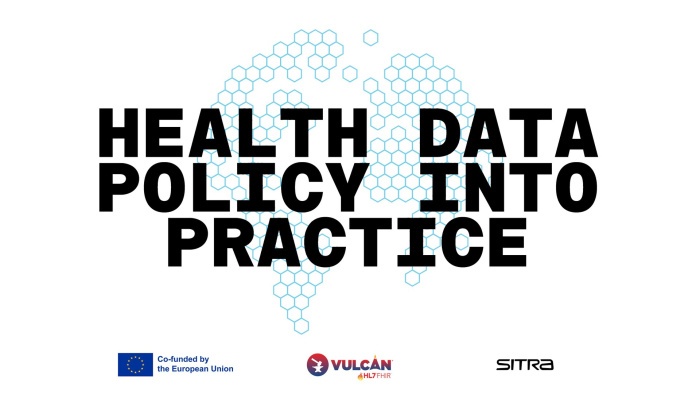National Digital Health Symposium 2023: How Digital Are We Really Becoming?
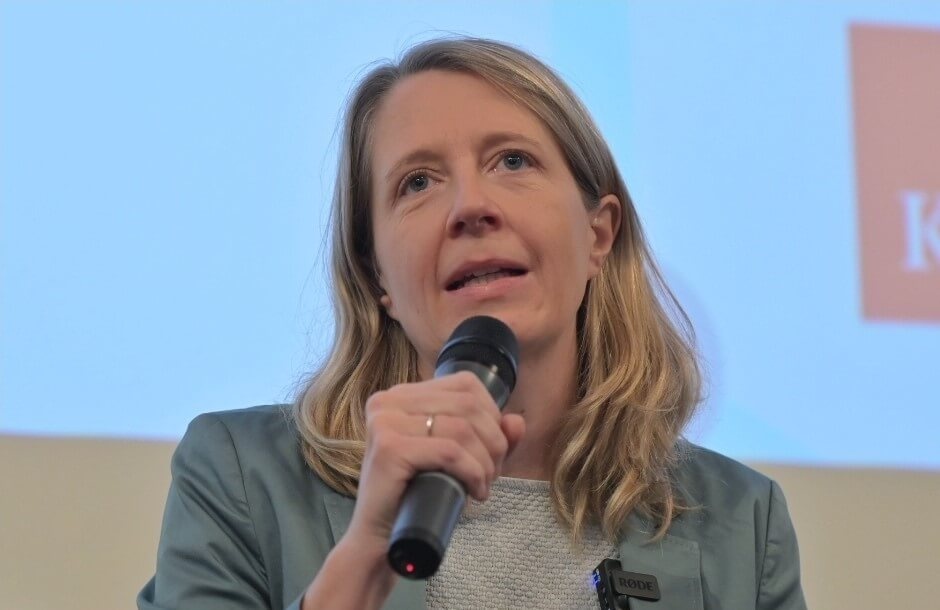
Dr. Susanne Ozegowski, Federal Ministry of Health (BMG), Head of Department 5 - Digitalization and Innovation. © TMF
The digitalization of the healthcare system is making dynamic progress. "Tomorrow, the two digital laws (Digital Act and Health Data Use Act) will be in the Health Committee and will be passed in plenary at the end of the week," announced Dr. Susanne Ozegowski from the Federal Ministry of Health (BMG) at the 5th National Digital Health Symposium in Berlin. At the heart of the two digital laws is the electronic patient file (ePA), which will create benefits for patients and doctors but should also be useful for research. The use of health data is also to be improved. Two hundred fifty experts from politics, healthcare, and research discussed current developments in these legislative plans for the digital transformation of the healthcare system and plans for the use of healthcare data.
"We have very ambitious goals and want 80% of insured people to have an ePA. Users can use active rights management to decide for themselves who can view and use their data," says Ozegowski. "A further step is to develop the ePA further so that it also becomes a tool for research." To this end, the security architecture of the ePA is being revised so that the data from all ePAs can be forwarded to the Research Data Center (FDZ) and used for research. This will create a large pool of data that is internationally competitive. The planned research data infrastructure will consist of billing data, ePA data, cancer registry data, and, in the future, data from the Medical Informatics Initiative, genome data, and other registries. "I am very pleased that we will get the legislation through committee tomorrow and very confident that this will take us a significant step forward on the path to digital transformation," summarized Ozegowski.
Ozegowski summarized:
I am very pleased that we will get the legislation through committee tomorrow and very confident that this will take us a significant step forward on the path to digital transformation.
Digitalization of the Healthcare System - Where Are We Heading?
"If we want to positively shape digitalization in the healthcare sector, we need to move away from a technology-dominated discussion," explained Dr Sibylle Steiner, Chair of the National Association of Statutory Health Insurance Physicians (KBV). The problem is that people have tried to digitize processes from the analog world, but digitalization cannot mean simply mapping analog processes digitally. Digital applications must be thought of and developed from the user's perspective.
Kai Senf from the AOK-Bundesverband added: "We have a major communication task with the introduction of the ePA starting in January 2025. We have to take over 70 million patients with us. The processes really have to work. Otherwise, there is a risk of a major loss of trust."
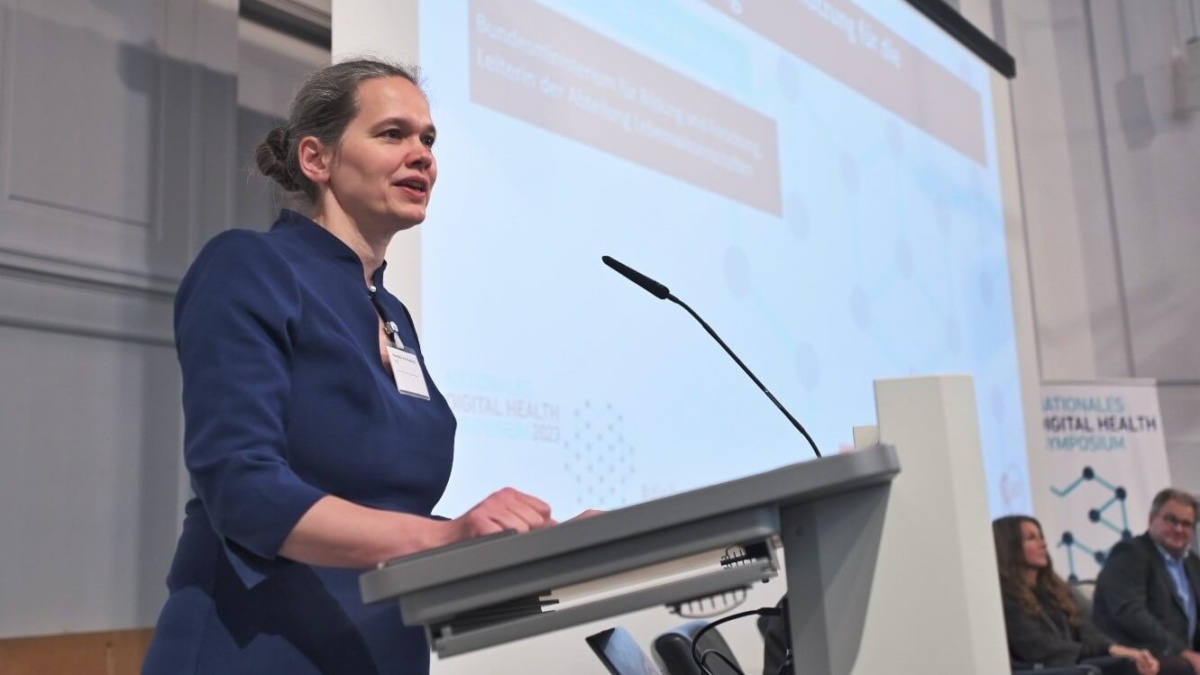
Prof. Dr. Veronika von Messling, Federal Ministry of Education and Research. © TMF
New Perspectives on the Use of Data for Health Research
Another key topic at the National Digital Health Symposium was the use of health data for research. "We welcome the regulations outlined in the draft Health Data Utilization Act (GDNG) to improve access to medical data for research. The law is a significant step and offers new opportunities to better use health data in medical research for the benefit of patients in Germany," says Sebastian C. Semler, the TMF’s Managing Director.
"We need to become even faster in digitalization because the data generated in the healthcare system must be better networked for the benefit of patients in order to develop new therapeutic approaches," said Tino Sorge, health policy spokesperson for the CDU/CSU parliamentary group in the Bundestag. "Above all, we must eliminate the impression that there is "good public" and "bad industrial" research."
"Making health data usable for research and care so that diseases can be treated faster and better in the future - we have made great progress towards this goal. The Federal Government's Health Data Use Act is an important milestone on this path," summarized Prof. Dr. Veronika von Messling, Federal Ministry of Education and Research. "The Medical Informatics Initiative and the University Medicine Network are the most important drivers for the innovative use of health data in Germany. They will interlink research and care even more closely in the future and drive forward a better database for medical research."
Artificial Intelligence Can Help Improve Research and Care
Artificial intelligence (AI) can play a decisive role in healthcare and research, the experts at the National Digital Health Symposium agreed. In light of the impending shortage of specialists and resources in medical care, AI will "expand human possibilities for action and development and could relieve doctors of administrative tasks in particular," said Prof. Dr. Alena Buyx, Chair of the German Ethics Council. "However, ultimate responsibility must always remain with humans."
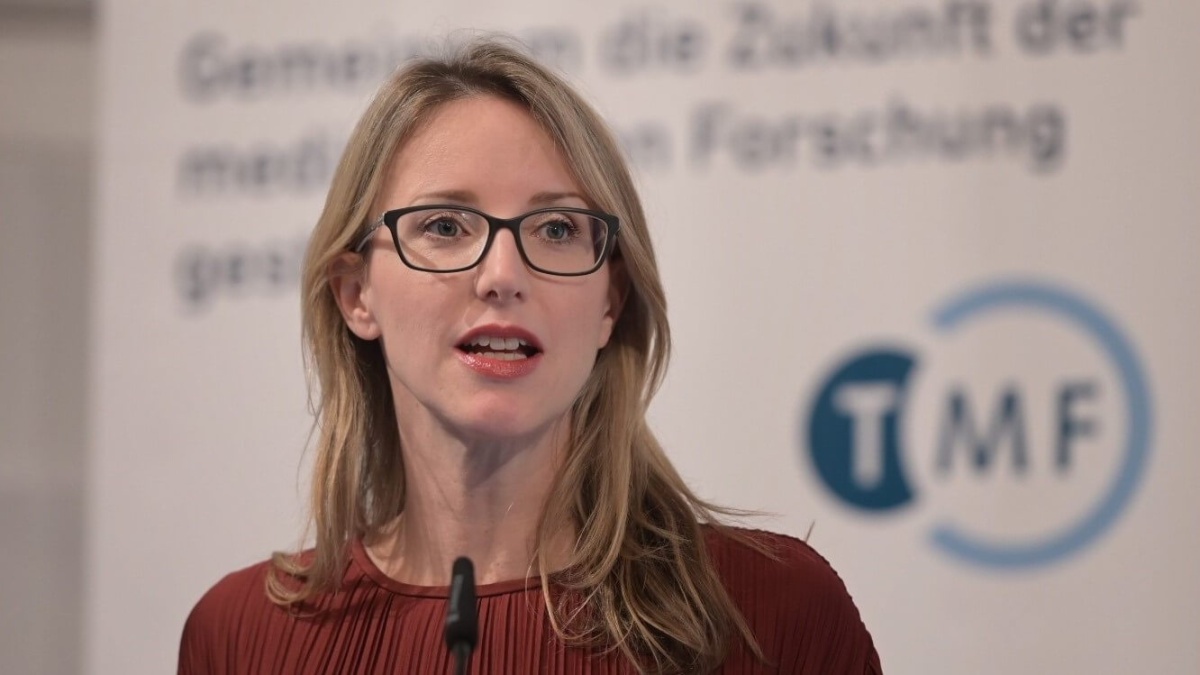
Prof. Dr. Alena Buyx, Chairwoman of the German Ethics Council. © TMF
Press Contact
Wiebke Lesch
Phone: +49 30 2200 24731
Mobile: +49 177 2663257,
E-mail: presse@tmf-ev.de
Twitter: @tmf_eV
The National Digital Health Symposium
The National Digital Health Symposium sees itself as a networking and exchange forum for service providers, payers, and medical research that incorporates the views of manufacturers and patients. The goal is to accelerate the digital cultural change. It is about taking a realistic view of challenges, tackling them constructively, and shaping the future healthcare system together. The National Digital Health Symposium has been organized by the TMF since 2019. The Kassenärztliche Bundesvereinigung (KBV) will be a cooperation partner again in 2023.
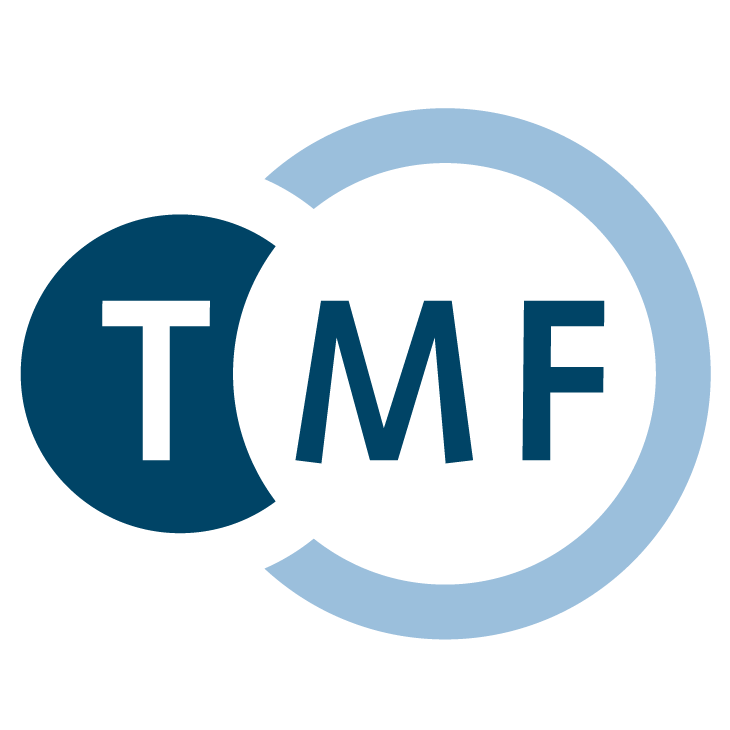
About the TMF
The TMF – Technology and Methods Platform for Networked Medical Research e.V. stands for research, networking and digitisation in medicine. It is the umbrella organisation for collaborative medical research in Germany, within which leading researchers exchange knowledge, jointly develop ideas and concepts, and thus shape the future of medical research in the digital age.

